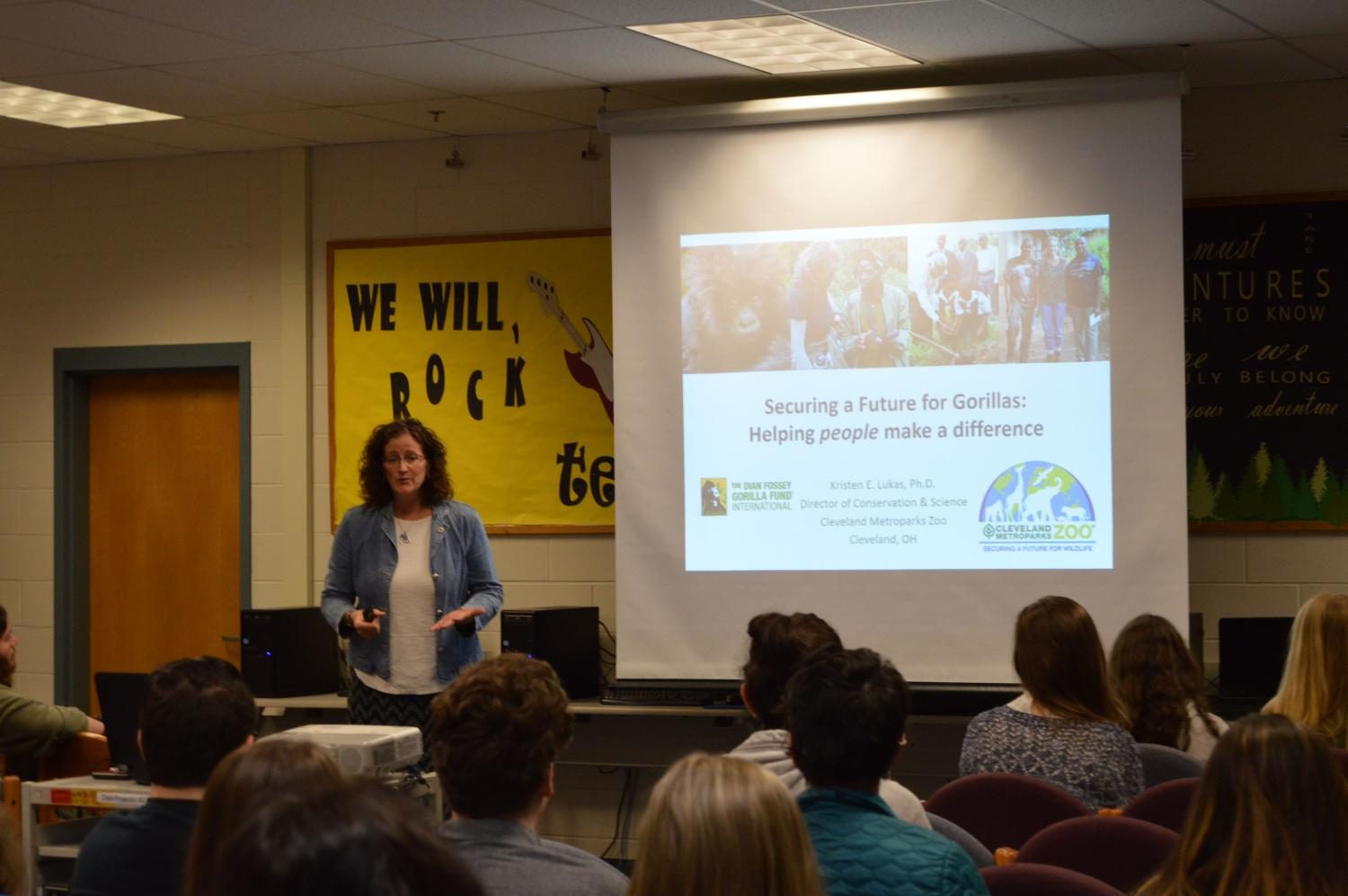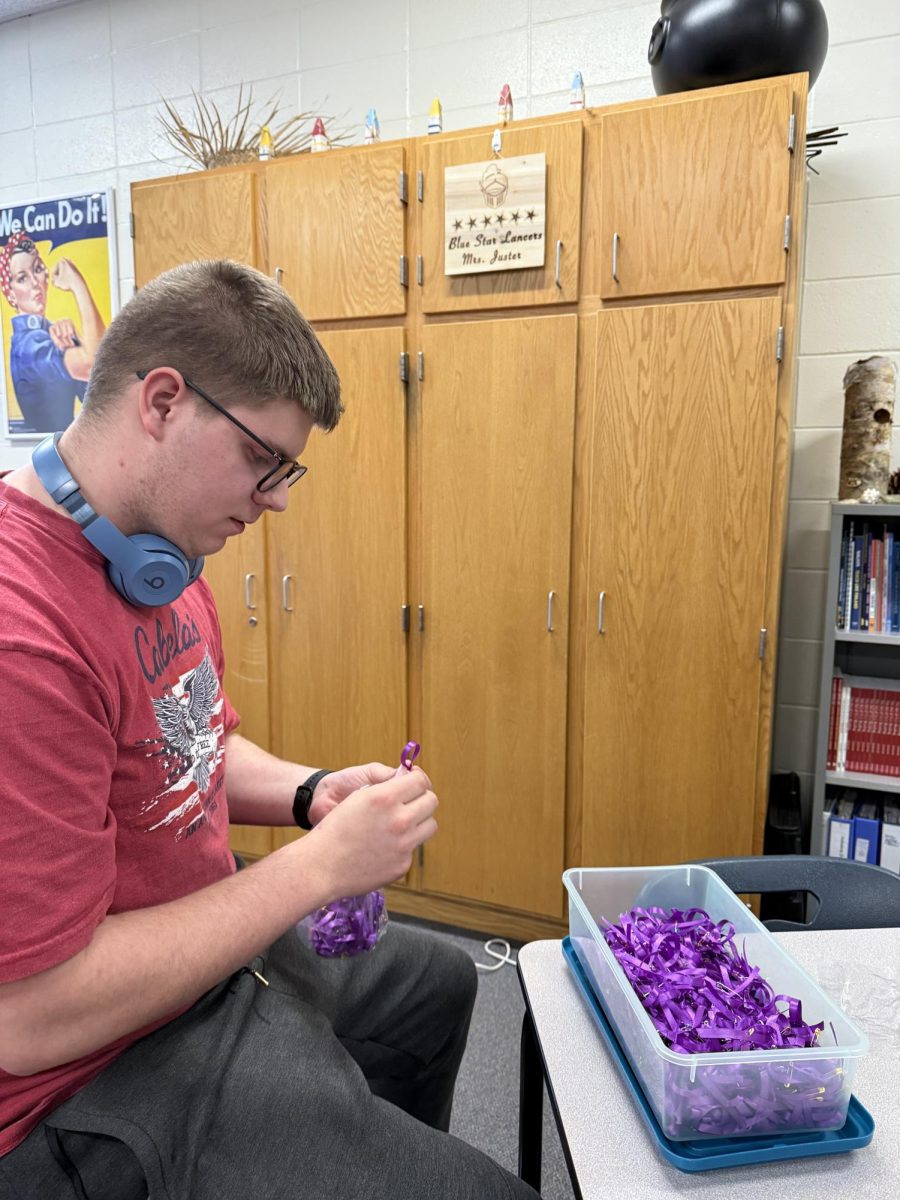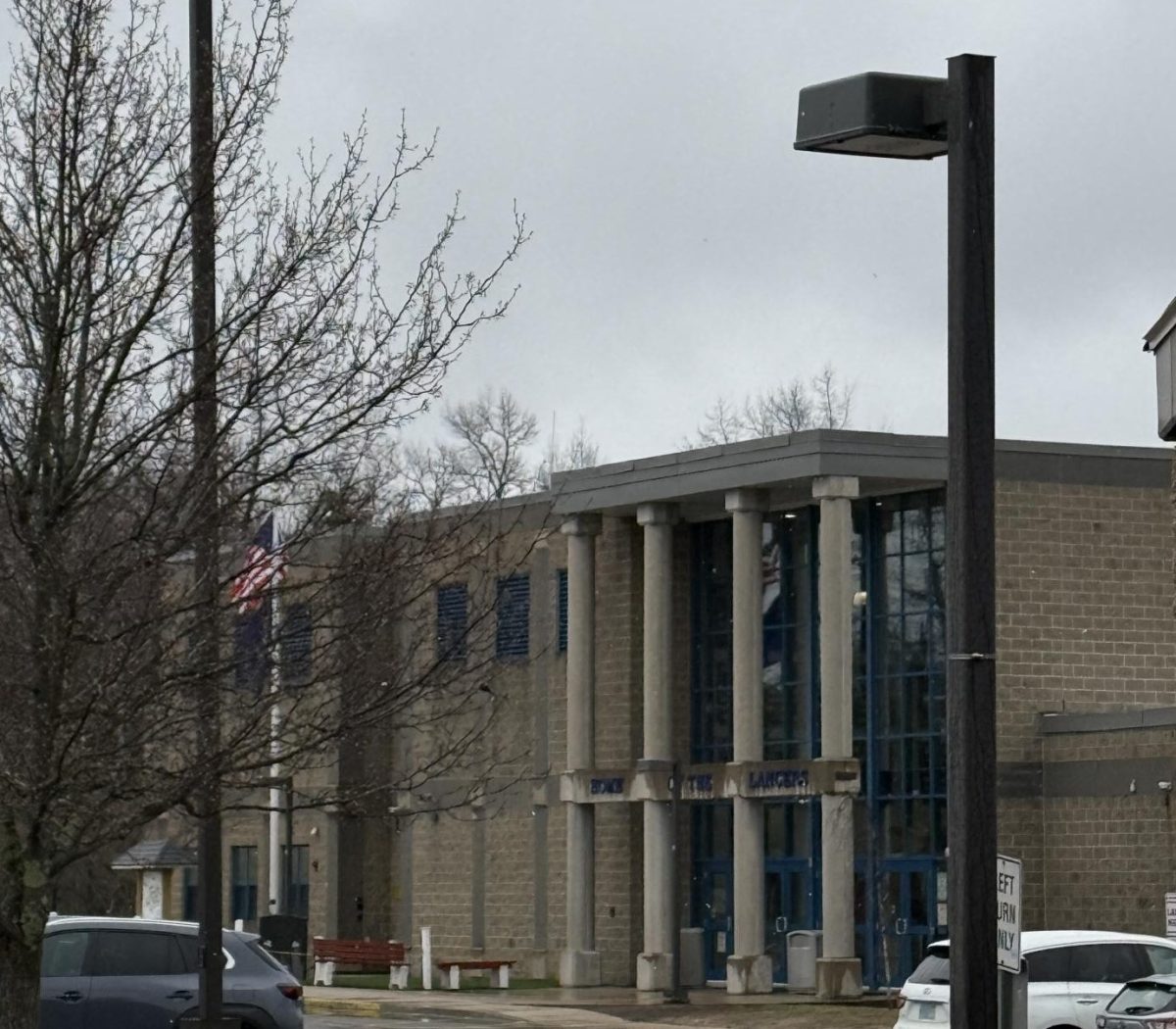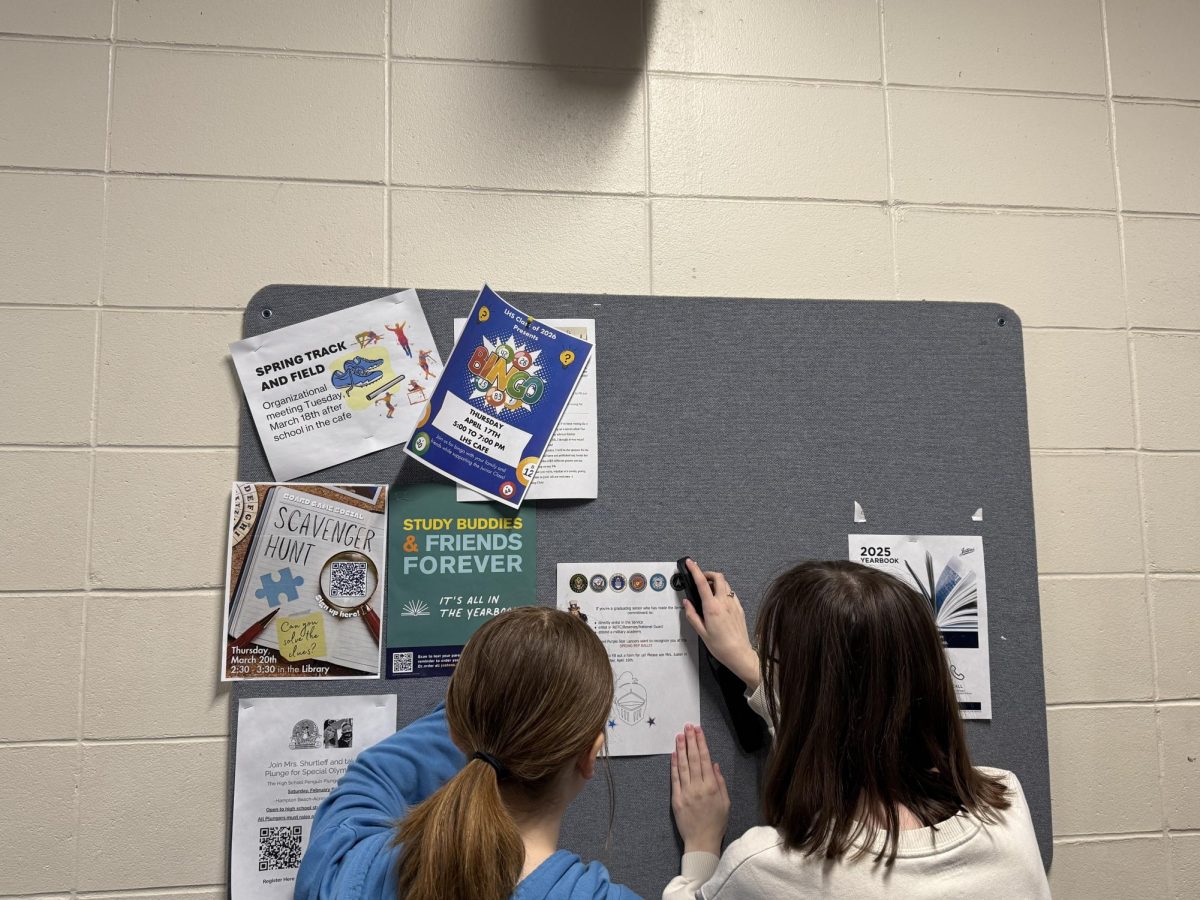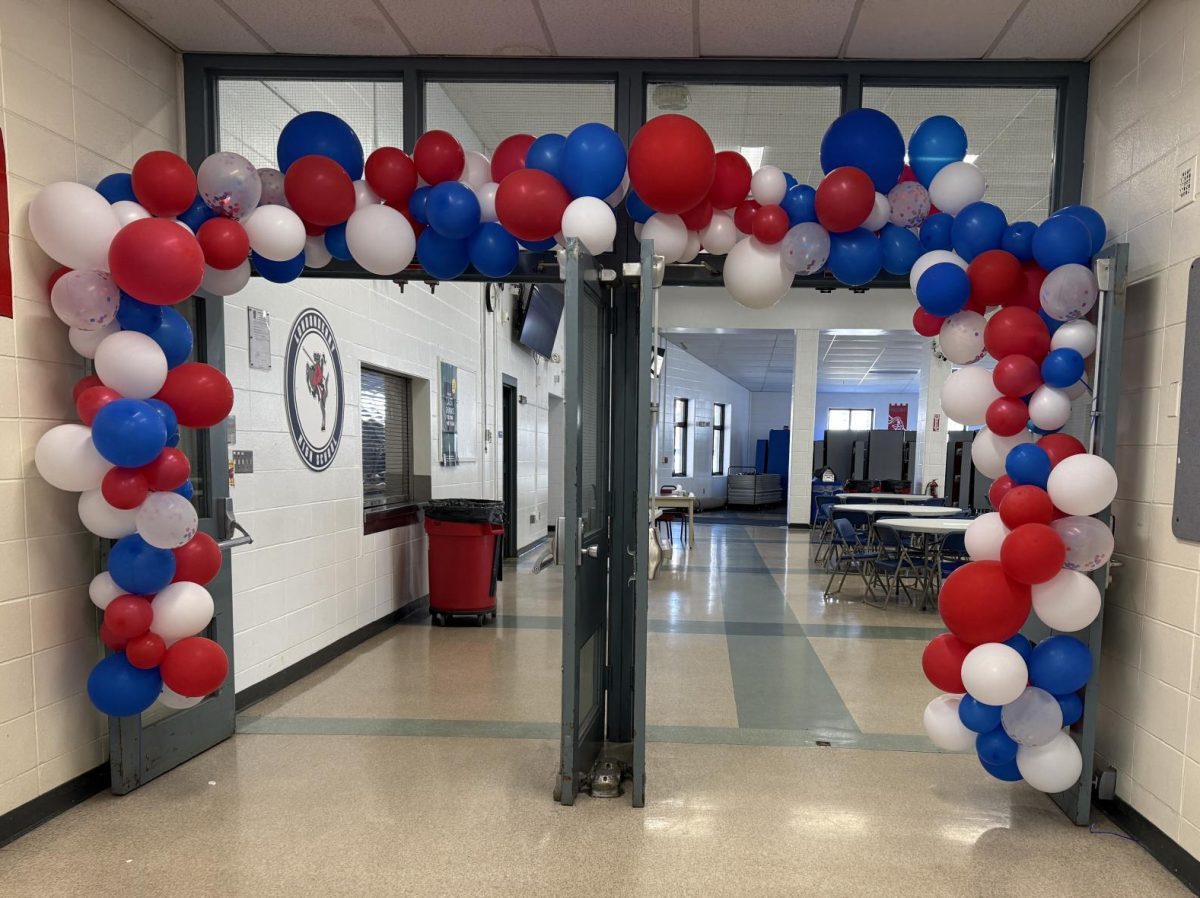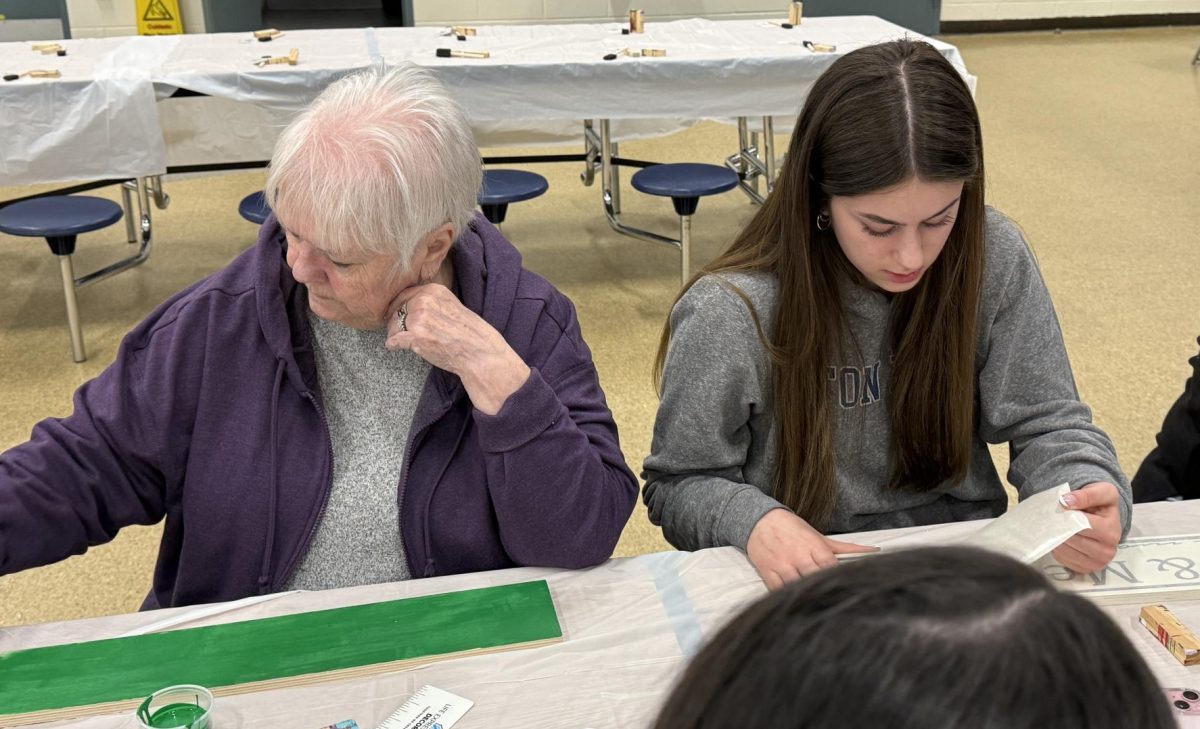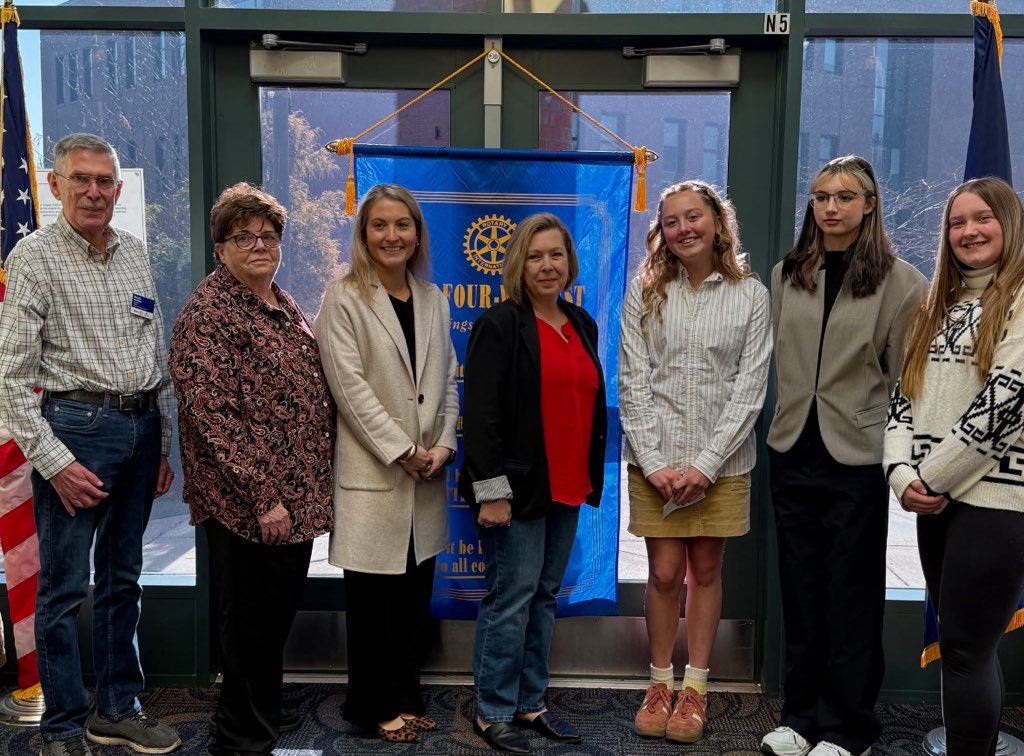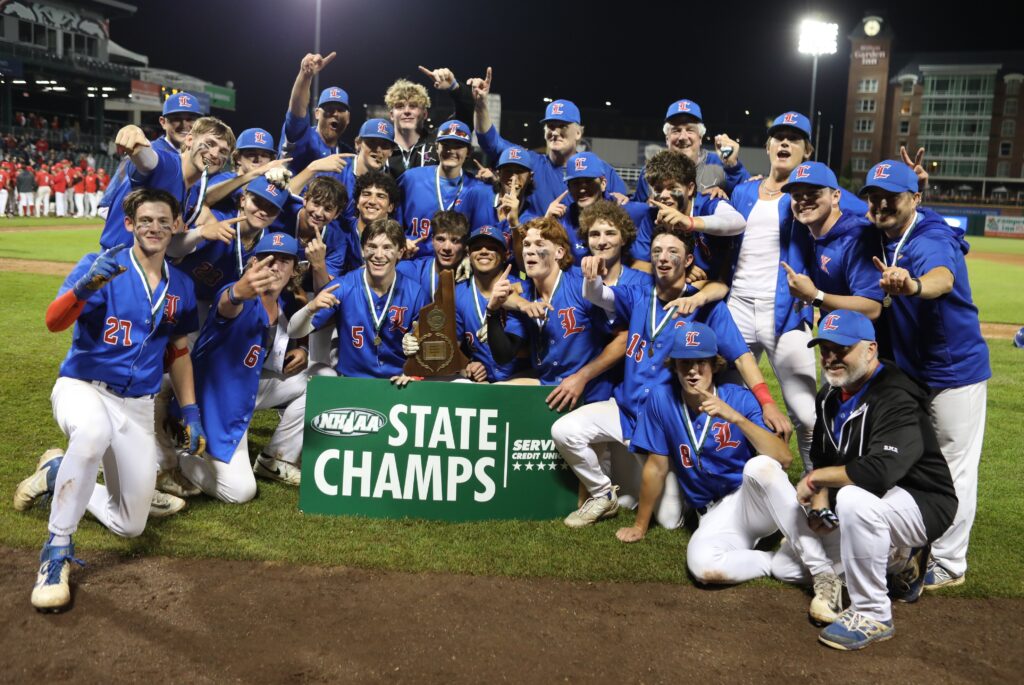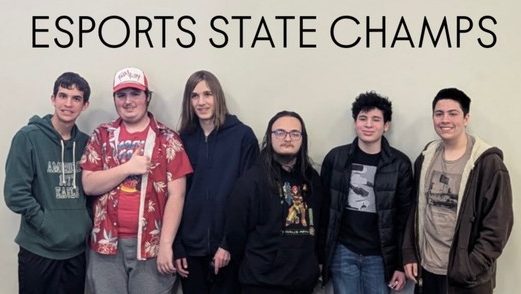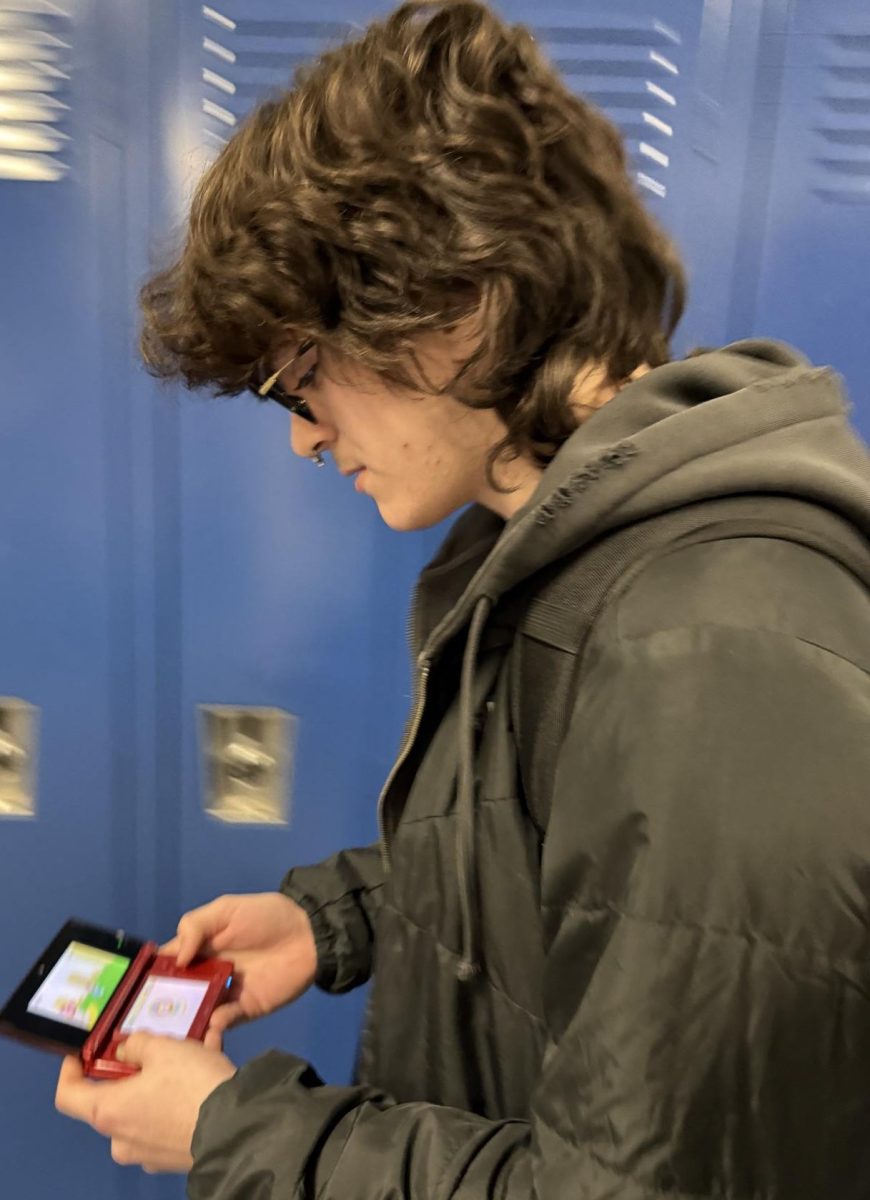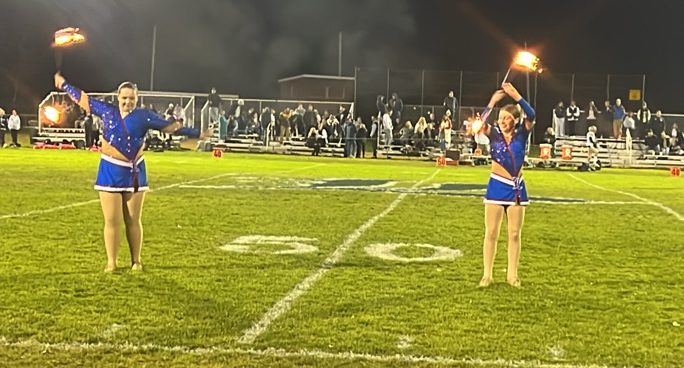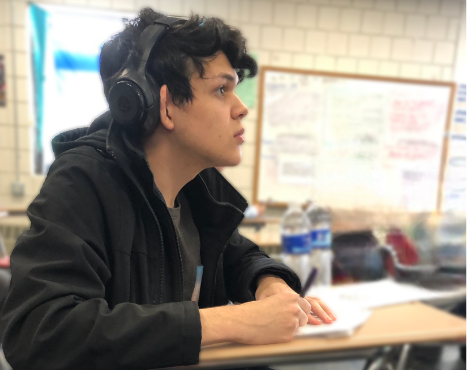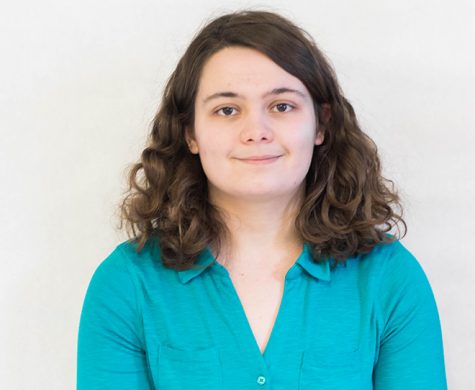When Mr. Grant’s AP Environmental Science (APES) class shuffled into the library on May 5, they were greeted by a video of elementary students from Uganda, dancing and singing. This same dance was witnessed by Dr. Kristen Lukas, the director of conservation and science at the Cleveland Metropark Zoo, when she first arrived in Uganda herself.
Along with working as a director at a zoo, Lukas also works as an adjunct assistant professor at Case Western Reserve University and travels to Africa twice a year. She works with the Bwindi Apes Conservation Education Partnership when she goes to Uganda and works with the Dian Fossey Gorilla Fund International when in Rwanda.
May 5 marked Lukas’s 4th time coming to LHS to give a presentation on wildlife conservation.
“I think it’s important to bridge the gap of knowledge between someone who’s at my stage and my career, and people who are just beginning to think about what they are doing for their careers and try to help convey a little bit of experience about the past,” Lukas said. “We need conservationists, and there are people who have it in them who don’t realize it until some point in their lives.”
When Lukas first enrolled in college, she majored in physical therapy until she took a psychology course and ended up switching to a psychology major.
While she was a psychology major, Lukas watched a documentary about Dian Fossey in her free time and ended up falling in love with the idea of being involved in wildlife conservation. From there, Lukas began studying animals at the Toledo Zoo as a research study for her undergraduate degree, and it was this that brought her down the path of environmental science and conservation. She eventually received her PhD at Georgia Tech in experimental psychology with a focus on animal behavior.
“I think it’s meaningful to fight for something that’s so fundamental to our survival, health, and well being,” Lukas said. “It’s a meaningful thing to work for.”
The APES class spent the first semester focusing on evolution, biodiversity, conservation, and are currently learning about the affects the human population and human technology have on the environment. All of these subjects were touched upon in Lukas’ presentation.
“The importance for [students] is where they fit in the world,” APES teacher Mr. Grant said. “To often times we see ourselves as being outside of our ecosystem, where as we get more innovations and we use more stuff we are actually having a bigger impact on it. So hopefully they see where they fit into the big picture.”
During the lecture, Lukas shared knowledge with the students about issues currently affecting the gorilla populations such as mining for coltan, a metal used in many technological devices such as smartphones, and the affects that diseases such as Ebola have on the Gorilla population. Lukas also mentioned that there were only 815 mountain gorillas left in the world, and they can only be found in the areas of Uganda, Rwanda, and the Republic of Congo.
“I couldn’t comprehend how few that was when you put it into the perspective of humans,” APES senior Kathryn Dwyer said. “She brought up one statistic of how much of an impact it would have if there was only three hundred humans left in the world.”
Lukas also talked with students about the research she conducts in order to make the lives of gorilla’s living in United States zoos more natural. She explained how she devised a more natural diet and feeding method for gorillas by allowing them to eat small portions throughout the day instead of giving them a larger portion of food at several intervals during the day. She also explained the reward method used at zoos to train the gorillas and gave a demonstration using on of the students.
“I thought that [Dr.] Lukas gave the lecture in a way that was intriguing and I liked how she explained how they train the apes in zoos,” APES student junior Heather Ricker said. “I liked how she demonstrated it, and I could tell she was a very good professor just by the way that she explained things so clearly to us.”
Throughout her presentation Lukas also stressed the importance of teaching others about the importance of conservation and the role that zoos play in connecting people to endangered animals across the world.
“There are a lot of people who we’ve met who live in cities or urban areas and there are people who have never been on a hike and who have never really stopped to look at the flowers or know what birds live near them,” Lukas said. “And I think there’s a lot of joy that can come from just beginning to experience it.”



